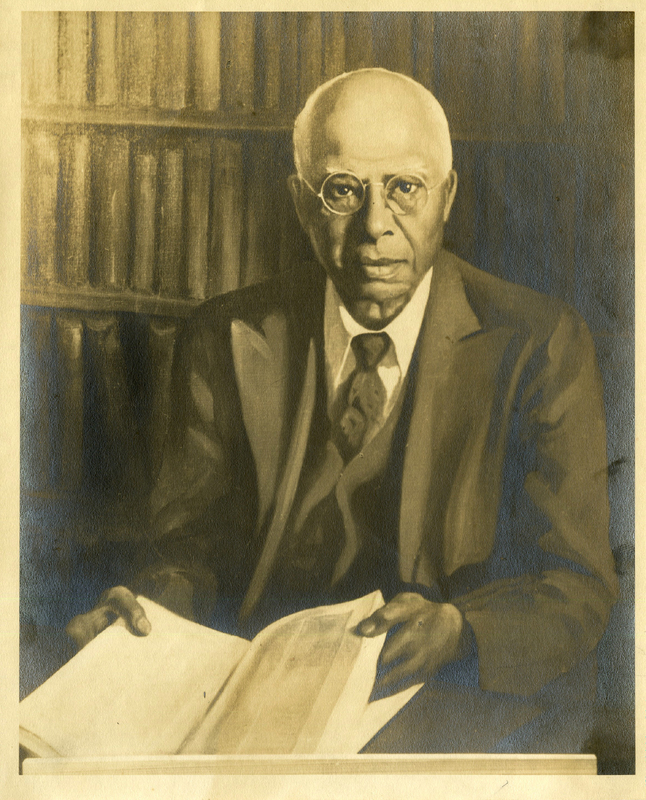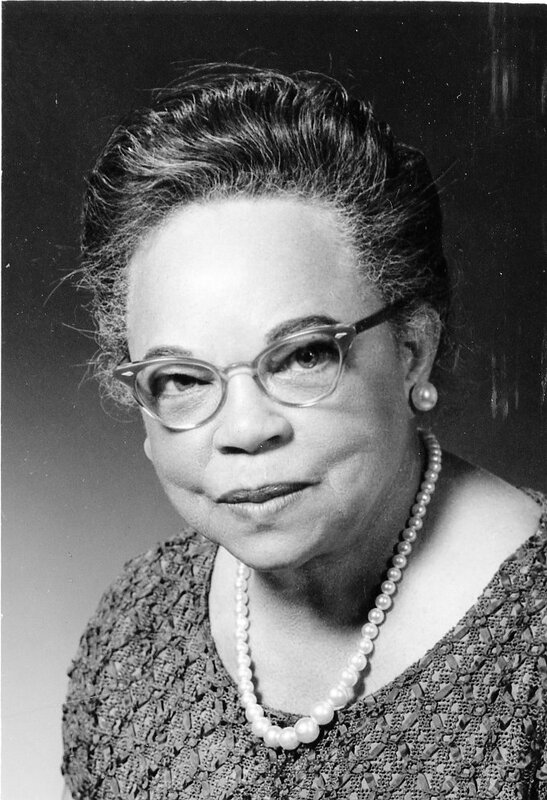Archives History
A History of the Tuskegee University Archives
The University Archives, established in 1968 by President Luther Foster, is the repository of the historically valuable records of Tuskegee University. The holdings of the Archives document the growth of the University from a small rural vocational school in 1881 to the comprehensive university it is today.
Resulting from the efforts of Monroe N. Work (1866-1945), the Archives is an outgrowth of the Department of Records and Research. Work founded the Department of Records and Research in 1908 where he amassed one of the largest and most comprehensive newspaper clipping files in America, including 188 file cabinets containing approximately 550,000 items. Work’s efforts resulted in the compilation of the Lynching Records (1881-1953), Race Relations Reports (1954-63), The Negro Year Book (1912-51) and the Bibliography of the Negro in Africa and America (1928).
Upon Work’s retirement as director of the department in 1939, sociologist Ralph N. Davis, his assistant, continued Work’s legacy of collecting, analyzing and disseminating materials relating to all aspects of the Black experience, with particular emphasis on the role of Tuskegee University. Following Davis in 1944, sociologist and civil rights pioneer, Charles Gomillion (1900-1995) was the interim director until 1946 when he was replaced by Jessie P. Guzman.
Guzman (1898-1996) was Dean of Women (1938-1944) at Tuskegee University until her appointment as Director of the Department of Records and Research where she continued the work of her predecessors in documenting the lives of African Americans and maintaining Tuskegee’s comprehensive lynching records. A professor in history, Guzman helped to compile and edit two volumes of the Negro Yearbook (1947 and 1952). The author of numerous articles and pamphlets, she also wrote Crusade for Civic Democracy: The Story of the Tuskegee Civic Association, 1941-1970 which was published in 1983. Guzman completed her tenure as Director in 1963 and the collections remained under the care of the Tuskegee University Library.
Interestingly, from 1963 until 1968 the records from the Department of Records and Research were split between the Library (books, pamphlets, etc) and the Behavioral Science Department. Behavioral Science was responsible during the 1970s for placing on microfilm the Tuskegee Institute Newspaper Clippings File and the George Washington Carver Papers.
In 1968, the Department of Records and Research was renamed the Tuskegee University Archives and Daniel Williams was appointed the University Archivist. It was during this time that the collections under the Behavioral Science Department were returned to the Archives. Williams excelled as a collector. During his thirty year tenure, he amassed many diverse collections, all pertaining to Tuskegee University and African Americans in general. Williams, known for his vast knowledge of all things Tuskegee, authored many in-house documents and compiled the useful volume Eight Negro Bibliographies. Daniel “Danny” Williams retired from the archives in 1999.
With the launching of the Tuskegee University National Center for Bioethics in 1999, the Archives were temporarily placed under the Bioethics Center as part of the Archives and Museum Component. From 1999 thru 2007, Cynthia Beavers Wilson, an assistant under Williams, served as Coordinator of Archives and Museum while reporting to the director of the Tuskegee University National Center for Bioethics and the Director of Library Services. Under Wilson’s watchful eye, the existing collections were maintained and the archives continued to grow. Wilson saw the archives through two important events, the initial move of the archives from the Library to Drew Hall (a converted student residence building) in 1999 and from Drew Hall to the Bioethics Building (formally John A. Andrew Memorial Hospital) in 2005. Furthermore, she was assigned the responsibility for the design and location of the Archives in the renovated Bioethics Building. In 2005, the Archives and Museum component was temporarily closed for reorganization.
After reorganization, the Tuskegee University Archives were placed directly under the oversight of the Director of Library Services, Juanita Roberts, and was re-opened on April 1, 2009; Dana Chandler was subsequently appointed University Archivist in August of the same year.
Chandler oversees an extensive archival collection. Particular to the collection are the 150 plus file boxes within the Booker T. Washington Collection, which many have assumed were only in the National Archives. Further collections include the Papers of Robert R. Moton containing materials concerning the 1927 Mississippi flood and the National Negro Business League, and the Papers of George Washington Carver which highlight his tenure at Tuskegee University. Other collections such as the Papers of the Southern Courier and the National Committee to Abolish the Poll Tax highlight a portion of the collections concerning the Civil Rights Movement. The archival collection also contains a variety of artifacts, such as the Carver Meteorite and Tuskegee University sports memorabilia.
The archives emphasizes the digitization, documentation and preservation of its vast holdings. Containing over 600 collections (and counting), approximately 40,000 photographic images and a myriad of artifacts, audio and video tapes, the archives has implemented a digital repository using D-Space in order to highlight many of its important materials. Other aspects of our website include databases of our holdings, finding aids, research helps, images and audio mp3s. Our website has received over 70,000 hits within its first eight months. Receiving researchers and visitors daily, the Archives continues in the tradition of its predecessors of maintaining its records while encouraging research.

